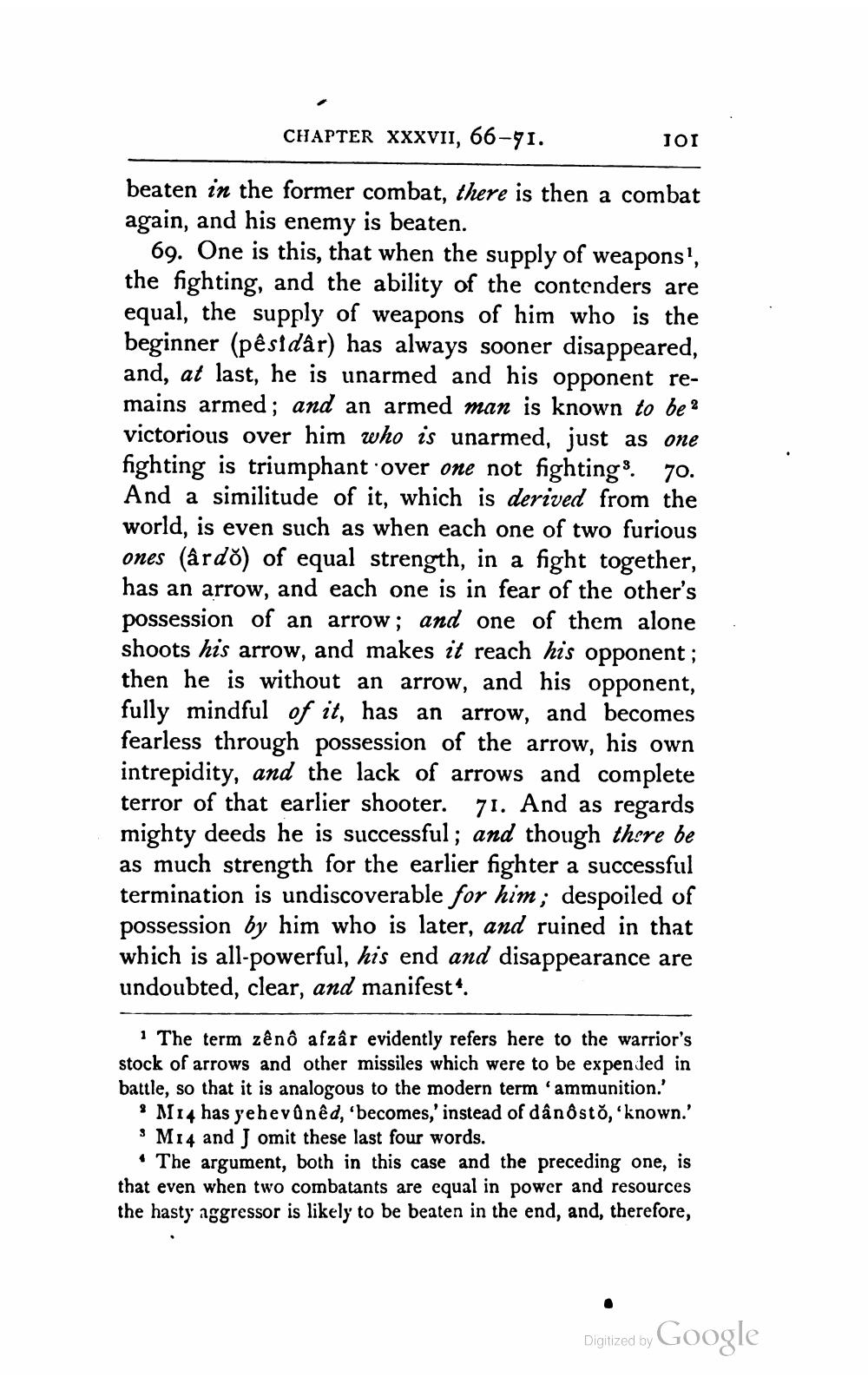________________
CHAPTER XXXVII, 66-91. 101 beaten in the former combat, there is then a combat again, and his enemy is beaten.
69. One is this, that when the supply of weapons!, the fighting, and the ability of the contenders are equal, the supply of weapons of him who is the beginner (pêsidâr) has always sooner disappeared, and, at last, he is unarmed and his opponent remains armed; and an armed man is known to be ? victorious over him who is unarmed, just as one fighting is triumphant over one not fighting? 70. And a similitude of it, which is derived from the world, is even such as when each one of two furious ones (ârdð) of equal strength, in a fight together, has an arrow, and each one is in fear of the other's possession of an arrow; and one of them alone shoots his arrow, and makes it reach his opponent; then he is without an arrow, and his opponent, fully mindful of it, has an arrow, and becomes fearless through possession of the arrow, his own intrepidity, and the lack of arrows and complete terror of that earlier shooter. 71. And as regards mighty deeds he is successful; and though there be as much strength for the earlier fighter a successful termination is undiscoverable for him; despoiled of possession by him who is later, and ruined in that which is all-powerful, his end and disappearance are undoubted, clear, and manifest“.
1 The term zênô afzâr evidently refers here to the warrior's stock of arrows and other missiles which were to be expended in battle, so that it is analogous to the modern term 'ammunition.'
* M14 has yehev ûnêd, 'becomes,' instead of dânôsto, 'known.' * M14 and J omit these last four words.
• The argument, both in this case and the preceding one, is that even when two combatants are equal in power and resources the hasty aggressor is likely to be beaten in the end, and, therefore,
Digitized by Google




